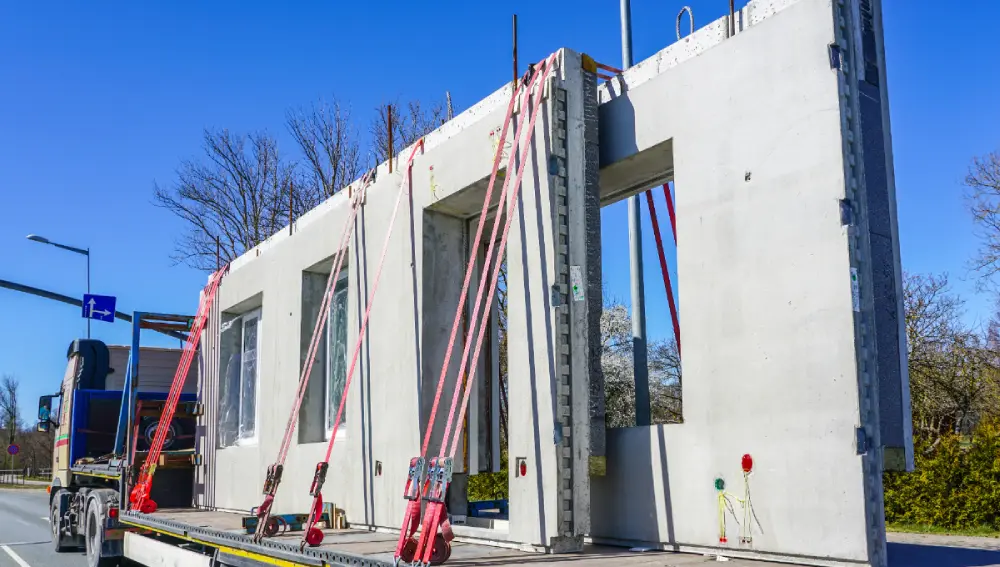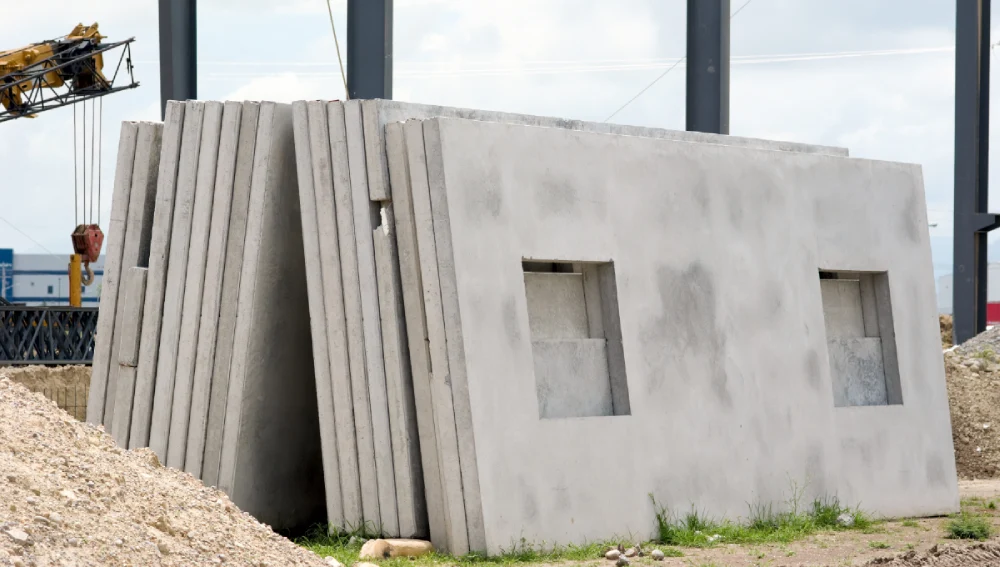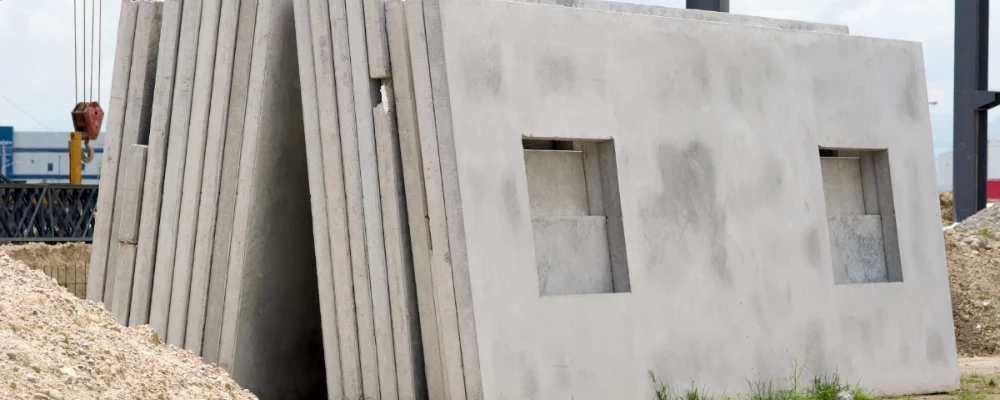Precast concrete wall panels are gaining popularity in modern construction due to their numerous advantages. Compared with conventional building techniques, it becomes a prime choice for builders, property owners, and architects looking for durable and cost-effective solutions.
It fundamentally transforms the way we build, allowing us to exceed expectations for the final product. From a faster construction timeline to lower labour costs, you can experience flexibility in all aspects. Whether you are planning for a commercial or residential building, consider precast concrete wall panels as a prime choice for wall materials.
This blog explains the types and hidden benefits of precast concrete walls, exploring how to use them for your next construction project.
What are Precast Concrete Wall Panels?

A precast concrete panel is an element used to create interior or exterior walls. They are prepared by pouring concrete into a mould and curing it in a controlled environment. Reinforced bars embedded with concrete provide extensive structural integrity. When the concrete mixtures are carefully formulated, buildings can obtain the desired durability, strength, and insulation properties.
Once the estimated properties are achieved, it can be easily transported to the construction site as a finished material. Instead of on-site concrete casting, this method allows for increased speed of construction, cost-effectiveness, and durability. It improves construction quality, thus improving the lifespan of the buildings.
Significance of Precast Concrete Walls
The benefits that the prefabricated walls bring to the table are exceptional. They are an innovative building solution that contributes to quick installation, on-time delivery, and cost-effectiveness. Some of the key advantages are explained below:
Superior Strength and Durability
There is no doubt that precast concrete walls are remarkably durable against harsh environmental forces, including rusting, weather conditions, fire, abrasion, and erosion. During off-site manufacturing, the mixture of products is carefully curated to maximise the full potential of concrete, thus leading to enhanced strength and durability. Easy to Install
The prefabrication process drastically reduces building time. When the concrete walls are completely ready, they can be installed much faster than traditional wall construction. It accelerates the overall timeline and reduces labour costs. The building owners and construction teams take advantage of the streamlined execution methods, promoting minimal disruption, excellent coordination, and enhanced resource allocation.
Sound Proof
A precast structure contains a dense composition of concrete and acts as a barrier against sound. The mass of concrete creates a quieter and more comfortable indoor environment, ideal for noise-sensitive areas. Whether it is a residential or industrial structure, including airports or hospitals, they are widely used for reduction of sound transmission.
Maintenance and Repair
Unlike traditional building methods, precast concrete walls don’t require frequent maintenance. A regular cleaning is recommended to efficiently remove the dirt, dust, and debris. When it is manufactured in a controlled environment, there is no opportunity to encounter frequent repairs or damages. To improve its durability, periodic communication with qualified professionals is advisable.
Lower Cost
The cost of precast concrete depends on a host of factors, including the desired quality, transportation charges, and type of materials. This doesn’t mean that it is expensive. When compared with traditional concrete construction, precast concrete walls are low cost. They are extremely flexible installation wise. When you select concrete wall panels, you are not only saving money but also time. Typically, it optimises the overall project timeline, resulting in reduced labour costs.
Technical Characteristics of Precast Concrete Wall Panels

The below mentioned are general estimates, they may vary depending on the production site. Builders and owners are advised to inquire about the significant factors that influence choosing the best concrete wall that fits their building’s requirements. Here are those key factors compared to other commonly used wall materials:
- Compressive Strength: Precast concrete wall panels have a comprehensive strength of 25 – 50 MPA, which is significantly higher than stone (around 20 – 50 MPA) and brick (around 10 – 20 MPA).
- Flexural Strength: 4 to 6 MPA – Exceeds brick and stone, highly resistant to bending and cracking.
- Dimensions: Can be as large as 12.34m x 3.80m.*These large sizes reduce construction time and labour cost.
- Average Weight: 280 to 350 kg/m2 – it is significantly heavier than wood and steel.
- Thickness: 16 to 50 cm – Thicker panels offer extreme strength and insulation, but may increase cost and weight.
- Seismic Zone: Precast concrete wall panels can withstand seismic activity, designed particularly for earthquake-prone areas.
In a Word
Precast concrete wall panels are a great wall material choice for modern construction. They benefit the contractors or builders in all aspects, such as design flexibility, speed of construction, and durability. The materials and quality are tailor-made, making them popular for various building types. By carefully considering its significant factors, you can achieve successful and long-lasting projects.
Additionally, exploring the Types Of Wall Panelling available can offer even more design options to suit specific project needs. The materials and quality are tailor-made, making them popular for various building types. By carefully considering its significant factors, you can achieve successful and long-lasting projects.
FAQs
Precast concrete wall panels are used in a wide range of applications due to their enhanced durability, energy efficiency, and speed of construction. Mostly, they can be observed in:
Residential construction
Agricultural structures
Industrial facilities
Commercial buildings and
Retaining walls
Yes, the construction type of each project is unique in its own way. This method offers design flexibility with various sizes, finishes, colours and textures to fit the architectural style. Builders or contractors can choose the panel that suits their project requirements.
The concrete mix and reinforcement are the deciding factors in the strength of precast concrete wall panels. Typically, the flexural strength ranges from 4 to 6 MPa and the compressive strength from 25 to 40 MPa.

